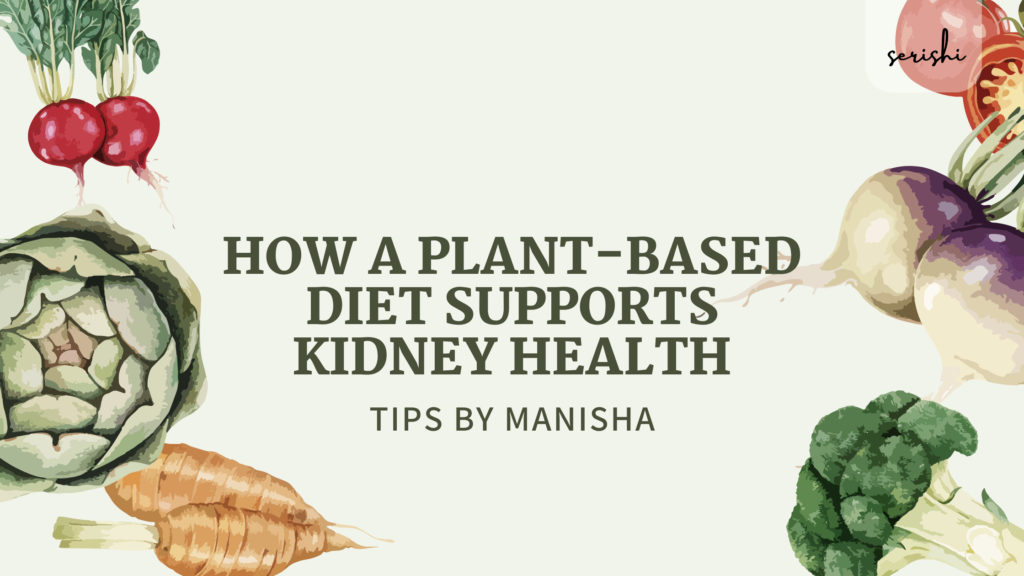The food we eat has a profound impact on our overall health, and this is especially true for our kidneys. With rising cases of kidney diseases, many individuals are turning to dietary changes to protect their renal function. A plant-based kidney diet can play a crucial role in supporting kidney health, reducing the risk of complications, and enhancing overall well-being.
Understanding Kidney Health and Nutrition
Our kidneys perform vital functions such as filtering toxins, balancing fluids, and regulating blood pressure. However, poor dietary habits, high sodium intake, and excessive animal protein consumption can strain these organs. A vegetarian diet for kidneys can help manage these risks by providing nutrient-rich, low-toxin foods that promote better kidney function.
Why Choose a Plant-Based Kidney Diet?
A well-planned plant-based kidney diet is rich in essential nutrients and low in harmful compounds. This approach emphasizes whole, unprocessed foods that naturally support kidney function while minimizing the intake of substances that can be harmful.
1. Reduced Protein Load on Kidneys
One major advantage of a plant-based kidney diet is that it reduces the burden of protein metabolism on the kidneys. Unlike animal proteins, plant proteins for kidney health are easier to process and generate fewer waste products, helping to maintain optimal kidney function.
2. Lower Risk of Kidney Disease
Research suggests that a vegetarian diet for kidneys may lower the risk of chronic kidney disease (CKD). Plant-based foods are rich in antioxidants, fiber, and anti-inflammatory compounds that help protect kidney cells from damage.
3. Better Blood Pressure Control
High blood pressure is a leading cause of kidney disease. A kidney-friendly plant foods diet, filled with potassium-rich fruits and vegetables, can help regulate blood pressure, reducing stress on the kidneys.
Key Nutrients in a Plant-Based Kidney Diet
Transitioning to a plant-based kidney diet requires selecting the right nutrients that support renal function while avoiding those that may cause harm.
1. Plant Proteins for Kidney Health
Plant-based protein sources, such as lentils, tofu, quinoa, and chickpeas, provide essential amino acids without overburdening the kidneys. Unlike animal proteins, these sources have lower phosphorus levels, which is crucial for individuals with kidney disease.
2. Kidney-Friendly Plant Foods
Some of the best kidney-friendly plant foods include:
- Cauliflower: A great low-potassium alternative to starchy vegetables.
- Blueberries: Packed with antioxidants that help protect kidney tissues.
- Cabbage: Low in sodium and potassium, making it ideal for kidney health.
3. Healthy Fats and Hydration
Including heart-healthy fats such as flaxseeds, walnuts, and olive oil can provide anti-inflammatory benefits. Additionally, staying well-hydrated with water, herbal teas, and low-potassium fruit-infused drinks can further support kidney function.
Serishi’s Approach to Kidney Health
At Serishi, we understand the importance of a kidney-friendly diet. Our expert-designed meal plans and nutrition guides emphasize plant-based eating tailored for kidney health. By integrating a vegetarian diet for kidneys into daily routines, individuals can manage their kidney health more effectively and enjoy a well-balanced lifestyle.
Practical Tips for a Kidney-Friendly Plant-Based Diet
Making the shift to a plant-based kidney diet can be simple and enjoyable with the right approach. Here are some practical tips:
- Opt for Low-Potassium Vegetables: Choose cabbage, cauliflower, and bell peppers instead of high-potassium options like potatoes and tomatoes.
- Limit Processed Foods: Avoid processed plant-based alternatives with added phosphates and sodium.
- Balance Your Nutrients: Ensure you get enough iron and vitamin B12, which are sometimes lower in a vegetarian diet for kidneys.
- Monitor Portion Sizes: Even kidney-friendly plant foods should be eaten in moderation to avoid excess nutrient buildup.
- Stay Hydrated: Proper hydration helps the kidneys flush out toxins efficiently.
Sample Plant-Based Diet Plan for Kidney Health
Here’s a simple meal plan designed for optimal kidney function:
Breakfast
- Oatmeal with blueberries and flaxseeds
- Herbal tea or low-potassium fruit smoothie
Mid-Morning Snack
- Handful of unsalted walnuts or almonds
- A glass of unsweetened almond milk
Lunch
- Quinoa salad with cabbage, bell peppers, and olive oil dressing
- Steamed cauliflower with lemon juice
- A bowl of lentil soup (moderate portions)
Afternoon Snack
- Cucumber and hummus dip
- Herbal tea or infused water
Dinner
- Grilled tofu with a side of sautéed spinach
- Brown rice with stir-fried kidney-friendly vegetables
- Warm chamomile tea
Pro Tip by Manisha Choudhary
“Maintaining kidney health through a plant-based diet is not just about eliminating harmful foods but also about including nutrient-dense, kidney-friendly options. Focus on natural, whole foods and avoid processed alternatives. Small dietary changes can have a lasting impact on your overall kidney function.”
Conclusion
A plant-based kidney diet is a powerful tool for protecting and improving kidney health. By focusing on plant proteins for kidney health, incorporating kidney-friendly plant foods, and following a balanced vegetarian diet for kidneys, individuals can reduce their risk of kidney disease and enjoy a healthier life. Serishi is committed to promoting kidney wellness through plant-based nutrition, offering valuable insights and support for those seeking a kidney-friendly lifestyle.
By making mindful dietary choices, you can take charge of your kidney health today. Explore plant-based options, embrace nutritious meals, and give your kidneys the care they deserve!
About the Author
Manisha Choudhary
Sr. Dietitian cum Nutritionist
Founder, CEO – Serishi
Manisha Choudhary is a seasoned Sr. dietitian and nutritionist passionate about helping individuals achieve healthier lifestyles through balanced nutrition. With over 10 years in the field, Manisha specializes in weight management, chronic disease management, postpartum recovery, and wellness nutrition. Her approach emphasizes sustainable, science-backed diet plans that cater to individual needs without compromising on taste or satisfaction. Manisha is dedicated to empowering her clients with the tools they need to make informed dietary choices, transforming their health and well-being one step at a time.

